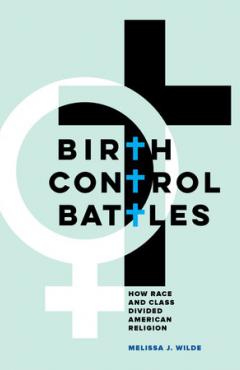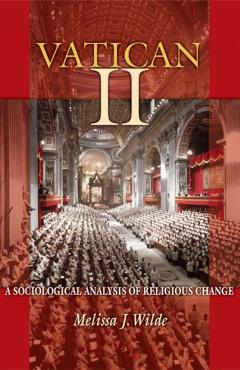Melissa J. Wilde is a sociologist of religion and inequality. She is currently serving as the Chair of the Department of Sociology. She joined the department at the University of Pennsylvania in 2006, where she was undergraduate chair from 2013-2017. She has published award-winning articles in the American Sociological Review and the American Journal of Sociology. Her recent book, Birth Control Battles, demonstrates that support for contraception among some of America’s most prominent religious groups was tied to white supremacist views of race, immigration and manifest destiny. She is currently working on a number of projects including: a large survey project on the relationship between religion and politics that will be fielded during the upcoming national election; an archive of historical articles on American religious groups’ views over the first half of the Twentieth century, and digitizing quantitative historical data on American religious groups that will allow her to examine religious inequality over the past century.
Ph.D. Sociology, University of California, Berkeley, 2002
M.A. Sociology, University of California, Berkeley, 1998
B.A. Sociology, New York University, 1996
One overarching question has driven my research as a comparative-historical sociologist: How can we better understand the ways in which religious institutions respond to social, cultural, and demographic change?
In pursuit of this question, I have investigated: the cultural factors and social movements that directed the Second Vatican Council in the Roman Catholic Church (1962-65); the demographic factors that explain why American Protestantism has gone from being majority Mainline to majority conservative and evangelical; the role religious competition and marketing played in encouraging the Roman Catholic Church to exponentially increase its granting of marital annulments; and how racialized concerns about “runaway fertility” among Catholic and Jewish immigrants caused many of America’s most prominent religious groups to rather suddenly liberalize on birth control in the early 1930s. Most recently, my interest in religious change has led me to examine the ways in which the structure of American religion has not changed – especially how and why religion remains deeply intertwined with inequality – in the US, but also around the world – and what this means, both theoretically and methodologically. I call this line of theoretical and empirical work, “complex religion.”
Examining these various research questions has, more often than not, required gathering my own data – from personal letters and Council votes from the Vatican Secret Archive on the part of 3000 bishops, to more than 10,000 articles from denominational periodicals for more than 30 religious groups over more than 50 years, to, most recently, developing a module for the General Social Survey so that we can better identify and understand Conservative Protestants and their political views. As a result, the research methods I use are varied – requiring everything from careful qualitative analysis of obscure archival sources in foreign languages to advanced statistical analysis of databases that I build myself.



